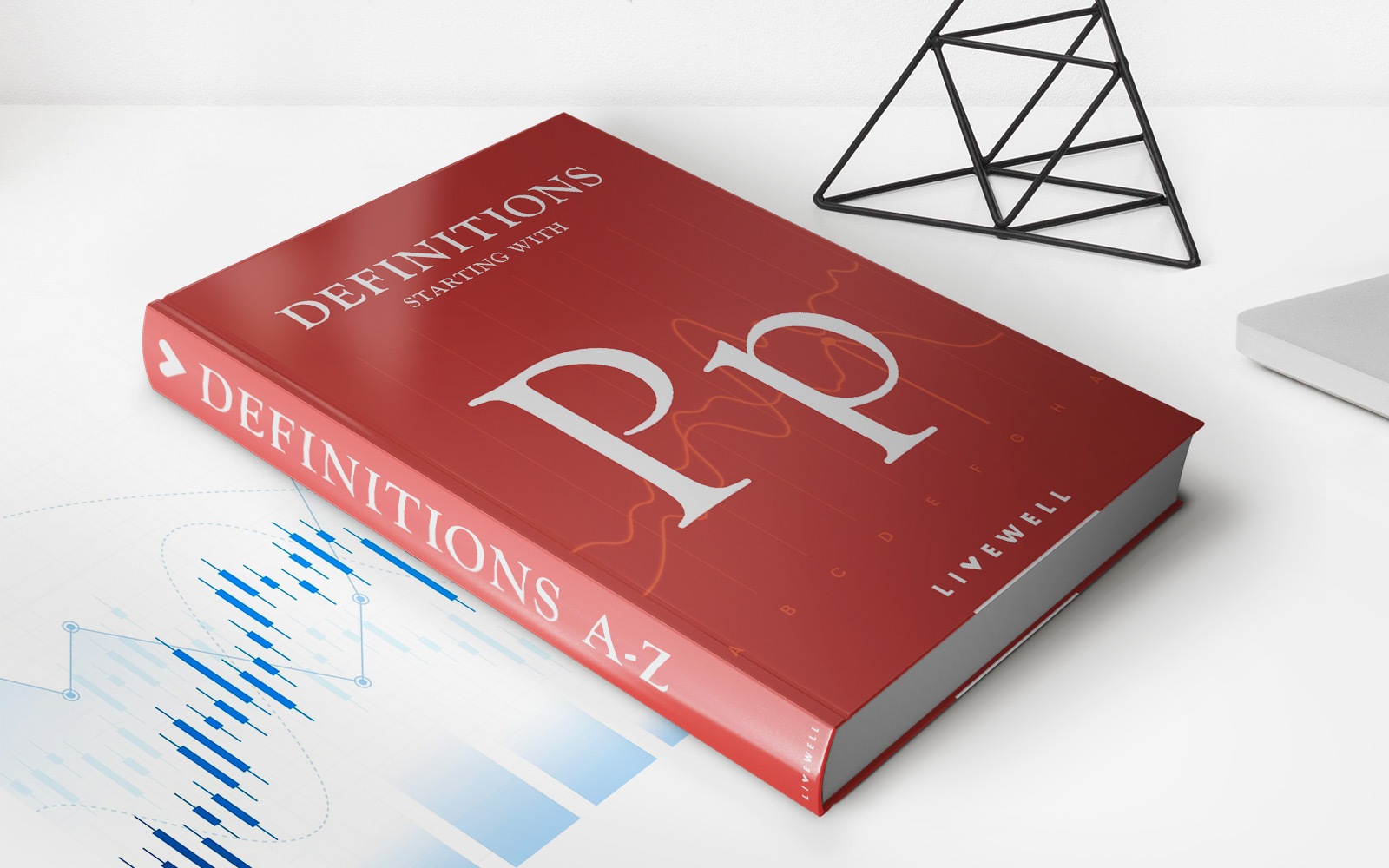

Finance
What Is Industry Accounting
Published: October 13, 2023
Discover the importance of finance in industry accounting and how it plays a vital role in ensuring financial stability and growth. Explore the key concepts and practices in this essential field.
(Many of the links in this article redirect to a specific reviewed product. Your purchase of these products through affiliate links helps to generate commission for LiveWell, at no extra cost. Learn more)
Table of Contents
Introduction
Welcome to the world of industry accounting! If you’re interested in finance and want to delve deeper into the intricate financial workings of different industries, then industry accounting is a fascinating field to explore. Industry accounting refers to the specialized accounting practices and principles that are unique to specific sectors or industries.
Accounting serves as the foundation for understanding the financial health and performance of businesses. It involves recording, summarizing, and analyzing financial transactions to provide stakeholders with relevant financial information. However, when it comes to industry accounting, there are certain nuances and complexities that make it distinct from general accounting practices.
In the world of industry accounting, accountants and financial professionals are required to possess a deep understanding of the specific industry in which they operate. They must have a keen eye for industry-specific metrics, regulations, and financial reporting requirements. This specialized knowledge allows them to accurately capture and communicate the financial performance and position of companies within their respective industries.
The importance of industry accounting cannot be understated. It plays a vital role in helping businesses make informed financial decisions, assess performance, comply with industry regulations, and communicate with various stakeholders. Industry accounting provides a detailed picture of the financial performance and position of companies within their specific sectors, enabling them to effectively manage resources, identify risks, and seize opportunities.
Whether it’s the healthcare, manufacturing, technology, or retail sector, each industry has its own unique set of accounting practices and challenges. Industry accounting professionals are trained to navigate these complexities and tailor financial reporting to meet industry-specific needs. By understanding the intricacies of a given industry, accountants can ensure accurate and relevant financial information is provided to stakeholders, including shareholders, investors, lenders, and regulatory bodies.
In the following sections, we will explore the key concepts of industry accounting, discuss its role in financial reporting, highlight the challenges faced by industry accountants, and delve into the industry-specific accounting standards that govern various sectors. We will also provide examples of industry accounting practices to offer you a glimpse into the fascinating world of this specialized field. So, let’s dive in!
Definition of Industry Accounting
Industry accounting can be defined as the application of accounting principles and practices that are specific to a particular industry or sector. It involves the use of specialized accounting methodologies, metrics, and regulations tailored to meet the unique needs and characteristics of businesses operating within that industry.
Each industry has its own set of accounting requirements and considerations due to the unique nature of its operations, revenue recognition patterns, cost structures, and regulatory frameworks. Industry accounting takes into account these industry-specific factors to provide accurate and meaningful financial information to stakeholders.
Industry accounting goes beyond the standard general accounting principles and practices. It requires accountants and financial professionals to have a deep understanding of the intricacies of the industry in which they operate. They must be familiar with industry-specific terminology, regulations, and reporting requirements to ensure the financial statements accurately reflect the economic reality of the business.
For example, in industries such as healthcare or construction, there are specific accounting principles and practices related to revenue recognition, project costing, and regulatory compliance. Accountants in these industries must be well-versed in these specialized accounting standards to ensure accurate financial reporting.
In addition to industry-specific regulations, industry accounting also considers the unique challenges and risks associated with a particular sector. For instance, the oil and gas industry faces unique accounting challenges related to exploration and production costs, reserve estimations, and revenue recognition from long-term contracts. Industry accountants in this sector must be knowledgeable about the specific guidelines and regulations set by accounting standard boards to accurately report financial information.
Overall, industry accounting enables businesses and stakeholders to gain a comprehensive understanding of the financial performance and position of companies within a specific industry. It provides industry-specific insights that are crucial for decision-making, strategic planning, resource allocation, risk management, and compliance.
In the following sections, we will explore the importance of industry accounting, the key concepts involved, and the role it plays in financial reporting. We will also discuss the challenges faced by industry accountants and delve into industry-specific accounting standards. So, let’s continue our journey into the world of industry accounting!
Importance of Industry Accounting
Industry accounting is of paramount importance for businesses and stakeholders in a variety of ways. By providing industry-specific financial information, it enables companies to make informed decisions, measure performance, comply with regulations, and effectively communicate with stakeholders. Here are some key reasons why industry accounting is crucial:
Accurate Financial Analysis: Industry accounting allows for accurate and meaningful financial analysis within a specific industry. By utilizing industry-specific metrics and benchmarks, businesses can assess their performance against industry norms and competitors. This analysis provides valuable insights into areas of strength and areas that need improvement, enabling businesses to make informed decisions for growth and profitability.
Evaluating Industry-Specific Risks: Each industry presents its own unique risks and challenges. With industry accounting, businesses can identify and evaluate these industry-specific risks, such as regulatory compliance, market fluctuations, technological changes, and resource availability. By understanding these risks, companies can develop strategies to mitigate them and enhance their overall financial stability.
Facilitating Resource Allocation: Industry accounting helps businesses allocate resources effectively. By understanding the cost structures, revenue patterns, and capital requirements specific to an industry, companies can allocate resources efficiently and strategically. This ensures optimal utilization of resources and minimizes unnecessary expenses, leading to improved financial performance.
Compliance with Industry Regulations: Different industries have their own specific regulations and reporting requirements. Industry accounting ensures that businesses comply with these industry standards and regulations. This includes adhering to industry-specific accounting principles, tax regulations, and financial reporting frameworks. By maintaining compliance, businesses can avoid legal penalties and reputational damage.
Enhanced Stakeholder Communication: Industry accounting enhances communication with various stakeholders. Whether it’s shareholders, investors, lenders, or regulatory bodies, industry-specific financial information provides a clearer and more accurate picture of a company’s financial performance. This transparency builds trust and confidence among stakeholders, leading to stronger relationships and increased support.
Supporting Business Valuation: Industry accounting is crucial when it comes to valuing businesses, especially in the context of mergers, acquisitions, or investment decisions. By utilizing industry-specific financial data, analysts and investors can accurately assess the value of a company within its industry. This valuation process provides insights into future growth potential and helps determine an appropriate price for investments or transactions.
Industry-Specific Decision Making: Industry accounting helps businesses make informed decisions that are tailored to the specific characteristics and challenges of their industry. Whether it’s pricing strategies, product development, market expansion, or cost management, industry-specific financial information guides decision-making processes, leading to more successful outcomes.
Overall, industry accounting is essential for businesses to thrive in their respective industries. It provides the necessary financial insights, compliance measures, and strategic guidance needed to navigate industry-specific challenges and maximize profitability. In the next sections, we will delve deeper into the key concepts of industry accounting and its role in financial reporting. So, let’s continue our exploration into this fascinating field!
Key Concepts in Industry Accounting
Industry accounting encompasses several key concepts that are vital for understanding and applying accounting principles within specific sectors or industries. These concepts form the foundation for accurate financial reporting and analysis tailored to the unique characteristics of each industry. Here are some of the key concepts in industry accounting:
Revenue Recognition: Revenue recognition is a critical concept in industry accounting as it determines when and how revenue is recorded. Different industries may have different revenue recognition criteria based on the nature of their operations. For example, in industries like software development, revenue recognition may be based on milestones achieved, while in industries like construction, it may be recognized based on the percentage of completion.
Cost Allocation: Cost allocation involves distributing costs among various activities, products, or services within an industry. Industries may have different cost allocation methods depending on their cost structures and production processes. For instance, in the manufacturing industry, costs may be allocated based on direct labor hours or machine usage, whereas in the healthcare industry, costs may be allocated based on patient visits or procedures.
Industry-Specific Metrics: Each industry has its own set of performance metrics that are used to evaluate financial performance and efficiency. Examples of industry-specific metrics include patient turnover rates in healthcare, inventory turnover ratios in retail, or occupancy rates in real estate. Industry accountants must be familiar with these metrics to accurately assess the financial health of a business within its industry.
Regulatory Compliance: Industries are subject to specific regulations and compliance requirements. Industry accountants must stay up-to-date with these regulations and ensure that financial reporting adheres to the prescribed guidelines. For example, industries such as banking and insurance have strict regulatory frameworks that govern their financial reporting practices.
Inventory Valuation: Inventory valuation is important for industries involved in manufacturing, retail, or any other sector that deals with the sale of physical goods. Different inventory valuation methods, such as First-In-First-Out (FIFO) or Last-In-First-Out (LIFO), may be used based on the industry. The choice of inventory valuation method can have significant implications for the financial statements and profitability of a business.
Depreciation and Amortization: Depreciation and amortization are accounting methods used to allocate the cost of assets over their useful lives. Different industries may have varying depreciation and amortization methods based on the type of assets they use. For example, industries like transportation may have significant assets such as vehicles and equipment that require depreciation, whereas industries like software development may have assets that require amortization.
Industry-Specific Tax Considerations: Tax regulations can vary across industries, and industry accountants must be aware of the specific tax considerations applicable to their industry. This includes understanding industry-specific tax credits, deductions, and exemptions that can impact the tax obligations of businesses within that industry.
Industry-Specific Financial Reporting: Industry accounting may require additional financial reports or disclosures specific to the industry. For example, the healthcare industry may require detailed reports on patient outcomes or healthcare costs, while the banking industry may require reports on loan delinquencies or interest rate risk. Industry accountants must be familiar with these reporting requirements to ensure accurate and comprehensive financial reporting.
By understanding and applying these key concepts, industry accountants can ensure that financial information is accurately captured, recorded, and communicated in a way that aligns with the unique needs and characteristics of their industry. These concepts form the basis for industry-specific financial analysis, decision-making, and compliance. In the next section, we will explore the role of industry accounting in financial reporting. So, let’s continue our journey into the world of industry accounting!
Role of Industry Accounting in Financial Reporting
Industry accounting plays a crucial role in financial reporting by providing industry-specific insights and ensuring that financial information accurately reflects the economic reality of businesses within a particular industry. Financial reporting is the process of preparing and presenting financial statements, including the balance sheet, income statement, and cash flow statement, to communicate the financial performance and position of a company to stakeholders. Here are some key roles that industry accounting serves in financial reporting:
Accurate Measurement of Financial Performance: Industry accounting ensures that financial performance is accurately measured within the specific context of the industry. By using industry-specific metrics and standards, accountants can capture and report financial data in a way that aligns with the unique characteristics and revenue recognition patterns of the industry. This allows stakeholders to have a clear understanding of how a company is performing relative to its industry peers.
Industry Benchmarking: Industry accounting facilitates benchmarking, which is the process of comparing a company’s financial performance and metrics against industry standards and competitors. By analyzing industry-specific ratios, such as profitability, efficiency, or liquidity ratios, businesses can assess their relative performance and identify areas of improvement or competitive advantage. This benchmarking process provides valuable insights for strategic decision-making and performance evaluation.
Compliance with Industry-Specific Regulations: Every industry has its own set of regulations and financial reporting requirements. Industry accounting ensures that businesses comply with these industry-specific regulations and standards. This includes adhering to industry-specific accounting principles, disclosure requirements, and reporting frameworks. By maintaining compliance, businesses can demonstrate transparency and integrity in their financial reporting, thereby building trust with stakeholders and regulatory bodies.
Enhanced Understanding of Industry-Specific Risks and Opportunities: Industry accounting helps businesses identify and analyze industry-specific risks and opportunities. By analyzing financial data within the context of the industry, accountants can provide insights into the potential risks and opportunities that businesses may encounter. For example, industry-specific financial reporting may highlight risks related to regulatory changes, market fluctuations, or technological advancements specific to the industry. This information enables businesses to make informed decisions and proactively manage risks.
Effective Communication with Stakeholders: Industry accounting ensures that financial information is communicated effectively to stakeholders. Stakeholders, such as shareholders, investors, lenders, and regulatory bodies, rely on accurate and relevant financial information to make informed decisions. Industry-specific financial reporting provides stakeholders with a comprehensive and meaningful understanding of a company’s financial performance, position, and prospects within its industry. This transparency enhances stakeholder confidence and fosters stronger relationships.
Strategic Planning and Resource Allocation: Industry accounting enables businesses to plan strategically and allocate resources effectively. By analyzing industry-specific financial data, businesses can identify trends, opportunities, and challenges within their industry. This information helps in strategic decision-making, such as entering new markets, developing new products, or optimizing cost structures. It also assists in resource allocation, ensuring that resources are directed towards areas that can generate the highest returns within the industry context.
Overall, industry accounting plays a critical role in financial reporting by providing accurate, relevant, and industry-specific financial information. It helps businesses comply with industry regulations, benchmark their performance, manage risks, and communicate effectively with stakeholders. By incorporating industry-specific standards and practices into financial reporting, industry accountants ensure that financial information reflects the unique dynamics and economic realities of businesses within their respective industries.
In the next section, we will explore some of the challenges faced by industry accountants in fulfilling their role in financial reporting. So, let’s continue our exploration of industry accounting!
Challenges in Industry Accounting
Industry accounting presents unique challenges that accountants and financial professionals must navigate to accurately report financial information within specific industries. These challenges arise from the distinct characteristics, regulations, and complexities associated with different sectors. Here are some common challenges in industry accounting:
Complex Industry-Specific Regulations: Each industry has its own set of regulations and accounting standards that must be adhered to. These industry-specific regulations can be complex and constantly evolving, making it challenging for accountants to stay up-to-date and ensure compliance. For example, industries such as healthcare, banking, or manufacturing may have intricate regulations related to revenue recognition, cost allocation, and financial disclosure.
Industry-Specific Revenue Recognition: The recognition of revenue can be challenging in industries with unique revenue streams or long-term contracts. Accountants must understand the industry-specific criteria, timing, and methods for revenue recognition to ensure accurate reporting. For instance, industries like software development may recognize revenue based on milestone achievement, while industries like construction may recognize revenue based on percentage of completion.
Industry-Specific Cost Allocation: Allocating costs accurately is crucial in industry accounting, particularly in sectors where costs are variable and complex. Accountants must determine the most appropriate cost allocation methods based on the specific characteristics of the industry. This requires a deep understanding of industry operations, cost drivers, and allocation principles to ensure that costs are allocated correctly and reflect the economic reality.
Technological Advancements: Rapid technological advancements impact industries and can present challenges for industry accountants. New technologies may require adjustments to industry accounting practices, such as revenue recognition for digital goods or the allocation of costs related to technological investments. Accountants need to stay abreast of these technological changes and adapt accounting practices accordingly.
Data Complexity and Integration: Industries often generate vast amounts of data from various sources, such as sales, production, or customer interactions. Accountants face the challenge of managing and integrating this data to produce accurate financial reports. They must ensure data integrity, consistency, and reliability when consolidating information across different systems and departments within the industry.
Industry-Specific Metrics and Ratios: Each industry has its own set of performance metrics and ratios that are used to evaluate financial health and effectiveness. Accountants need to understand these industry-specific metrics and ratios to accurately analyze financial performance and communicate insights to stakeholders. This requires a deep knowledge of industry benchmarks and a thorough understanding of the industry’s unique operating and financial characteristics.
Emerging Industry Trends: Industries continue to evolve with emerging trends and disruptive technologies. Accountants must anticipate and adapt to these trends to ensure that financial reporting remains relevant and captures the impact of industry changes. This may involve revisiting accounting policies, adopting new measurement techniques, or revising industry-specific reporting practices to reflect the changing landscape.
Interdisciplinary Collaboration: Industry accounting often requires collaboration with professionals from other disciplines, such as engineering, healthcare, or technology. Accountants need to bridge the gap between finance and the industry-specific knowledge of these professionals to ensure accurate financial reporting. Effective communication and collaboration are essential to understand and incorporate industry-specific information into financial statements.
Overcoming these challenges in industry accounting requires continuous learning, adaptability, and staying abreast of changes within the industry. It also emphasizes the importance of interdisciplinary collaboration and a deep understanding of industry-specific regulations and practices. Industry accountants must navigate these challenges to provide accurate and meaningful financial information that reflects the unique nature of businesses within their respective industries.
In the next section, we will explore industry-specific accounting standards that govern various sectors. So, let’s continue our exploration of industry accounting!
Industry-Specific Accounting Standards
Industry-specific accounting standards are a set of guidelines and rules that govern financial reporting practices within specific sectors or industries. These standards are designed to address the unique operational, economic, and regulatory considerations of different industries. By following industry-specific accounting standards, businesses can ensure accurate and consistent financial reporting that is tailored to their industry. Here are some examples of industry-specific accounting standards:
Healthcare: The healthcare industry has specific accounting standards governed by bodies such as the Financial Accounting Standards Board (FASB) and the Healthcare Financial Management Association (HFMA). These standards address unique aspects of healthcare finance, including revenue recognition for insurance reimbursements, cost allocation for patient services, and accounting for physician contracts.
Banking and Financial Services: The banking and financial services industry follows accounting standards set by regulatory bodies such as the International Financial Reporting Standards (IFRS) and the Financial Accounting Standards Board (FASB). These standards address topics such as fair value measurements, loan impairment, and accounting for financial instruments like derivatives.
Real Estate: The real estate industry has specific accounting standards that cover areas such as revenue recognition for real estate sales and leases, fair value measurements of investment properties, and accounting for real estate development costs. These standards are governed by bodies such as the International Accounting Standards Board (IASB) and the Real Estate Financial Standards (REFS).
Manufacturing: The manufacturing industry has accounting standards that address industry-specific issues such as inventory valuation, cost of goods sold, and overhead allocation. These standards ensure consistent and accurate reporting across the sector and are set by organizations like the IASB and the FASB.
Technology: The technology industry often faces unique accounting challenges related to revenue recognition for software and cloud-based services, research and development costs, and accounting for intangible assets. Accounting standards set by the IASB and the FASB provide guidance on these industry-specific issues.
Oil and Gas: The oil and gas industry has specific accounting standards that address topics such as revenue recognition for oil and gas sales, reserve estimation, and accounting for exploration and production costs. These standards are set by organizations such as the IASB and the FASB.
Insurance: The insurance industry follows accounting standards that cover areas such as insurance contracts, premium revenue recognition, and actuarial calculations. Regulatory bodies such as the International Association of Insurance Supervisors (IAIS) and the FASB provide guidelines on these industry-specific accounting practices.
These are just a few examples of industries with specific accounting standards. Various other industries, such as telecommunications, hospitality, and retail, also have their own industry-specific accounting guidelines to address unique financial reporting requirements.
Adhering to industry-specific accounting standards ensures that financial statements accurately reflect the economic reality of businesses within their respective industries. It provides consistency, comparability, and transparency in financial reporting, enabling stakeholders to make informed decisions and assess the financial performance of businesses within a specific industry.
Industry accounting professionals must stay up-to-date with these industry-specific accounting standards and ensure compliance in their financial reporting. They play a crucial role in applying these standards to capture and communicate industry-specific financial information accurately.
In the next section, we will explore some examples of industry accounting practices to give you a deeper insight into the application of industry-specific accounting. So, let’s continue our exploration of industry accounting!
Examples of Industry Accounting Practices
Industry accounting practices vary across different sectors to address the unique characteristics and requirements of each industry. These practices ensure that financial reporting accurately reflects the economic reality of businesses within their specific industries. Here are some examples of industry accounting practices:
Healthcare: In the healthcare industry, accounting practices focus on revenue recognition for patient services, cost allocation for treatments and procedures, and accounting for insurance reimbursements. Healthcare organizations must adhere to industry-specific regulations, such as the Healthcare Financial Management Association’s (HFMA) guidelines for patient financial interactions and the Financial Accounting Standards Board’s (FASB) standards for accounting for contracts with physicians.
Manufacturing: Accounting practices in the manufacturing industry revolve around inventory management and costing. Manufacturers employ various inventory valuation methods, such as First-In-First-Out (FIFO) or Last-In-First-Out (LIFO), to determine the cost of goods sold and the value of remaining inventory. Additionally, manufacturers allocate manufacturing overhead costs to products using methods like activity-based costing.
Technology: The technology industry often deals with complex revenue recognition issues due to the sale of software licenses, subscriptions, and cloud-based services. Accounting practices in the technology sector involve determining the appropriate timing and methods for recognizing revenue from these diverse revenue streams. Accountants may follow industry-specific guidelines, such as the revenue recognition standard ASC 606, to ensure accurate and compliant financial reporting.
Real Estate: Real estate accounting practices involve recognizing and measuring revenue from real estate sales, leases, and property management activities. Accountants in the real estate industry must consider factors such as lease classifications, fair value measurements of investment properties, and accounting for construction costs and development projects. Compliance with industry-specific standards, such as the International Financial Reporting Standards (IFRS) 16 lease accounting standard, is crucial in real estate accounting.
Banking and Financial Services: Accounting practices in the banking and financial services industry are regulated by industry-specific standards, such as the International Financial Reporting Standards (IFRS) and the Financial Accounting Standards Board’s (FASB) guidelines. These practices cover areas such as fair value measurement, loan impairment, accounting for derivatives, and financial instrument disclosures.
Oil and Gas: The accounting practices in the oil and gas industry revolve around revenue recognition for oil and gas sales, reserve estimation, and accounting for exploration and production costs. Accountants in this industry must adhere to industry-specific guidelines such as the International Financial Reporting Standards (IFRS) for the extractive industries (IFRS 6) and the Financial Accounting Standards Board’s (FASB) accounting standards for oil and gas companies.
These examples highlight some industry accounting practices, but it’s important to note that each sector has its own unique accounting requirements and considerations. Industries such as insurance, telecommunications, hospitality, and retail also have their specific accounting practices tailored to their respective operations and regulations.
Industry accountants play a crucial role in navigating these industry-specific accounting practices. They apply their expertise and understanding of the industry to ensure accurate financial reporting, compliance with industry regulations, and effective communication with stakeholders.
By following industry accounting practices, businesses can provide stakeholders with reliable and relevant financial information that reflects the economic reality of their specific industry. This information enables stakeholders to make informed decisions, assess financial performance, and evaluate the position of companies within their industry.
In the final section, we will conclude our exploration of industry accounting. So, let’s wrap up our journey!
Conclusion
Industry accounting is a specialized field that plays a crucial role in accurately reporting financial information within specific sectors or industries. It encompasses unique accounting practices, standards, and regulations tailored to address the distinct characteristics and requirements of each industry. Through industry accounting, businesses can provide stakeholders with accurate and meaningful financial information that reflects the economic reality of their specific industry.
The importance of industry accounting cannot be overstated. It enables businesses to make informed decisions, evaluate performance, comply with industry regulations, and effectively communicate with stakeholders. By following industry-specific accounting standards and practices, organizations can navigate industry complexities and provide stakeholders with a comprehensive understanding of their financial position within their industry.
Throughout this article, we have explored the definition of industry accounting, discussed its importance, highlighted key concepts, and delved into its role in financial reporting. We have also explored the challenges faced by industry accountants and discussed industry-specific accounting standards and practices. From healthcare to manufacturing, technology to real estate, each industry requires tailored accounting practices to accurately capture its unique financial operations.
Industry accountants face challenges such as navigating complex regulations, incorporating emerging industry trends, and ensuring accurate data integration. However, by staying updated, collaborating with professionals from other disciplines, and understanding industry-specific metrics and ratios, industry accountants can overcome these challenges and provide valuable financial insights to stakeholders.
In conclusion, industry accounting is an essential component of the financial landscape. It enables businesses to meet industry-specific requirements, address unique challenges, and communicate financial information effectively. By employing industry accounting practices, businesses can gain a competitive edge, enhance decision-making, and build trust among shareholders, investors, lenders, and regulatory bodies.
As industries continue to evolve, industry accounting will remain integral to capturing and communicating financial information that accurately reflects the nuances and complexities of different sectors. Industry accountants will continue to play a vital role in adapting to industry changes, implementing industry-specific accounting standards, and providing valuable insights to support the growth and success of businesses within their respective industries.
Thank you for joining us on this exploration of industry accounting. We hope you have gained a deeper understanding of this fascinating field and its significance in financial reporting.














